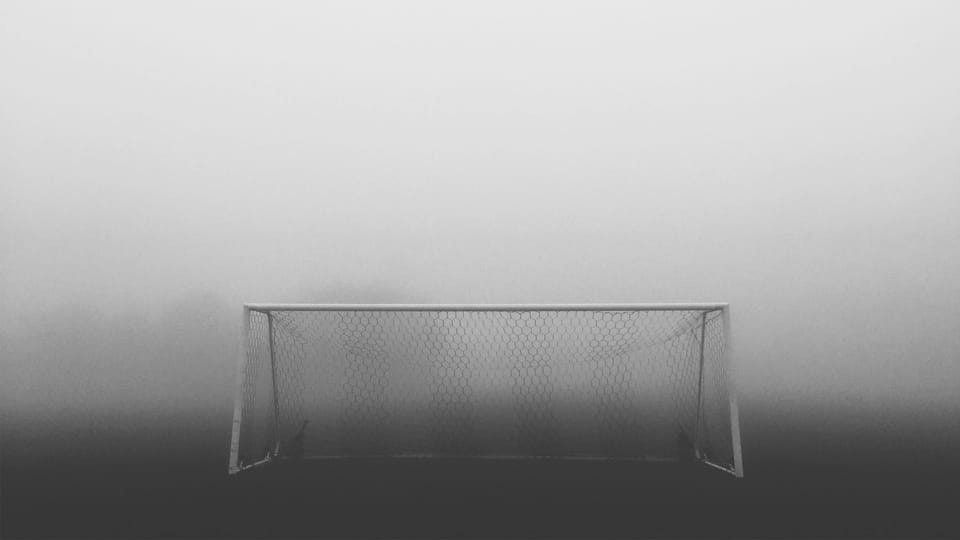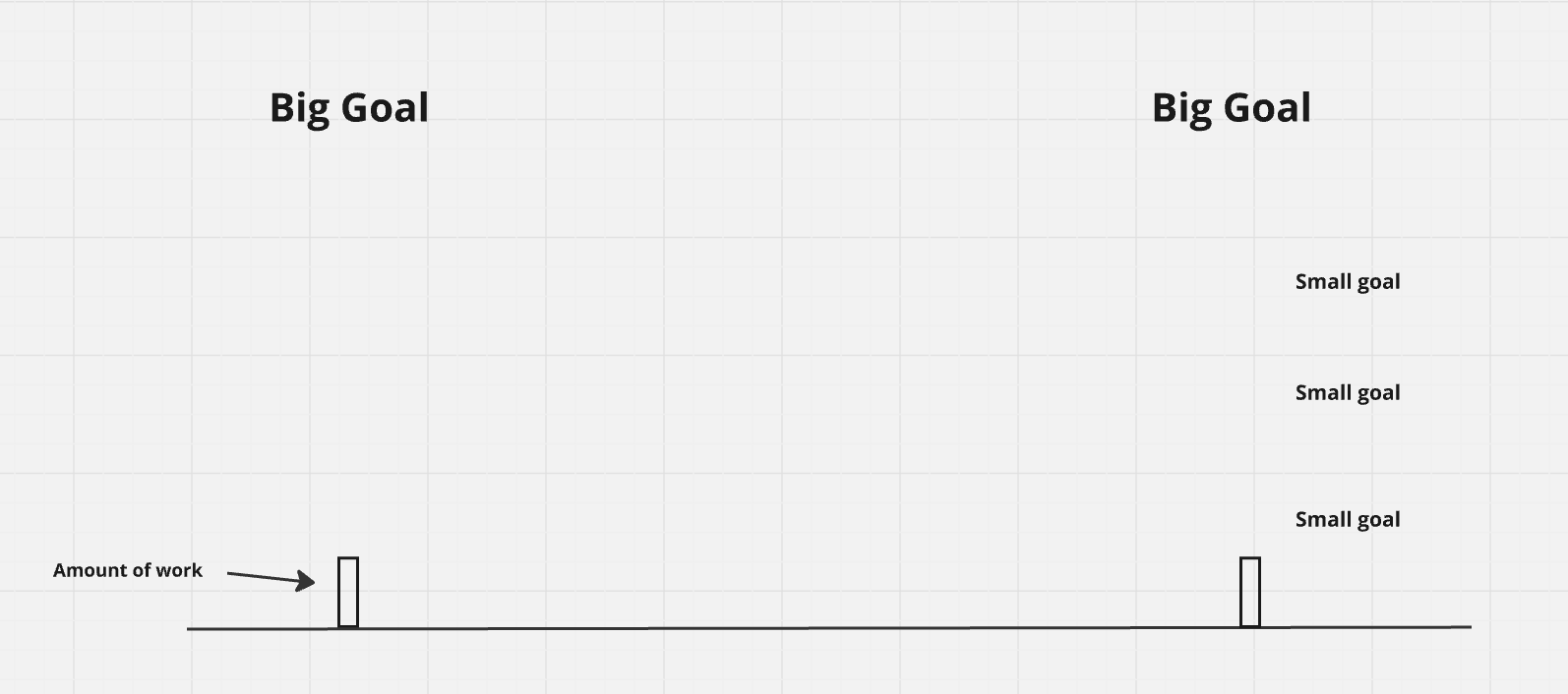You Should Set Smaller Goals

As children, we are always told to ‘aim high’ or ‘reach for the stars’. Although this is good advice, there's something extremely flawed within it.
We grow up knowing that setting huge goals is a good thing but we are never told what to do with the way we feel when we do.
We all know what this advice means, it means chase your dreams, go out and strive to accomplish your biggest goals in life.
Therefore, the feelings I am referring to, are the crippling feelings of insufficiency. They are the flooding feelings of wondering if achieving the things we want is even possible. And yet, no one talks about it.
They’re big goals for a reason, it’s because they are so far beyond our current level of capabilities that one has to call them ‘dreams’.
So why should we believe we can achieve them?
The moment the goal is set, we create an imaginary gap between us and where we want to be, a gap riddled with a sense of distance and self-doubt, without any form of actionable steps to get us there.
This is where setting small goals comes in.
Why Small Goals?
Small goals do two things to solve this problem.
The first is they allow us to build a roadmap that leads directly to the big goals themselves.
They give us something closer, something easier to aim for. While simultaneously moving us towards the big one, especially when the small goals are interconnected with them.
This reduces a huge proportion of the overwhelming feelings of distance and allows us to work with a lot less anxiety.
It’ll make the work we do feel much more impactful, rewarding us with a much greater sense of accomplishment, which only allows us to continue working better and faster as a result.
Take this image as a visual representation.

Without the small goal, you hardly made a dent. But with the smaller goals included, you’re 90% of the way there.
This does more than just create a greater sense of accomplishment.
By having smaller, more achievable goals along the way, you allow yourself the opportunity to win, which slowly but surely shrinks your self-doubt.
As I said, when you set the big goal, you have no reason to believe you can get there, but smaller goals provide the missing evidence, they allow you to start believing in yourself.
Having self-doubt along the way is extremely dangerous in terms of achieving difficult things, as when you reach a bump in the road, self-doubt will be there making it much easier to quit altogether.
Therefore, getting rid of self-doubt as soon as possible should be a priority, which is why setting, and accomplishing small goals is so important.
Okay, What Now?
You may be wondering what kind of ‘smaller goals’ to set.
As I’ve already mentioned, setting goals that directly impact the bigger ones is a good place to start, but not necessary.
The good thing about self-doubt is it can be beaten through multiple avenues.
Self-doubt is often unwarranted, meaning there is no reason for you to doubt yourself in the first place, and proving yourself wrong in one way, can greatly reduce self-doubt in others.
As an example, by running a marathon, you reduce your self-doubt in your career. Essentially, by proving yourself wrong in one domain, you start believing you can do the same in others. (Not that running a marathon is a small goal)

What this means is the smaller goals you set do not have to be connected to the big goals, and will have the same effect, at least in terms of self-doubt.
Also, setting goals that are not connected to the big ones is probably a good idea, as it’ll give you an opportunity to make progress in multiple ways, making the journey more enjoyable and sustainable.
So, if there is something big, long-term, and extremely difficult that you’re trying to accomplish, consider adding in some smaller, more achievable goals along the way.
It’ll get you there faster, better, and you’ll have much more fun doing it.

Member discussion